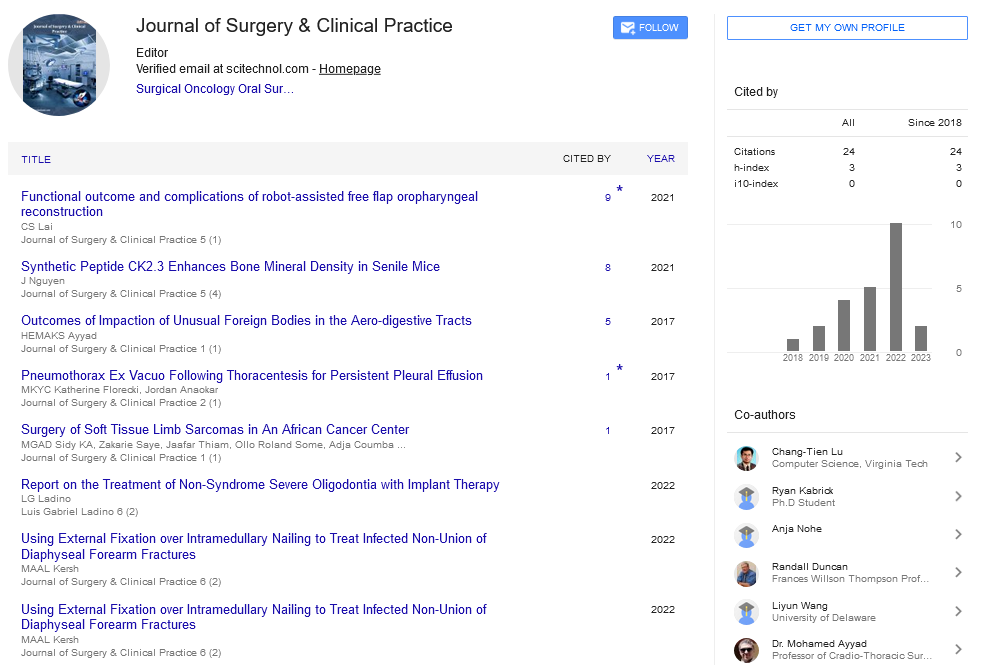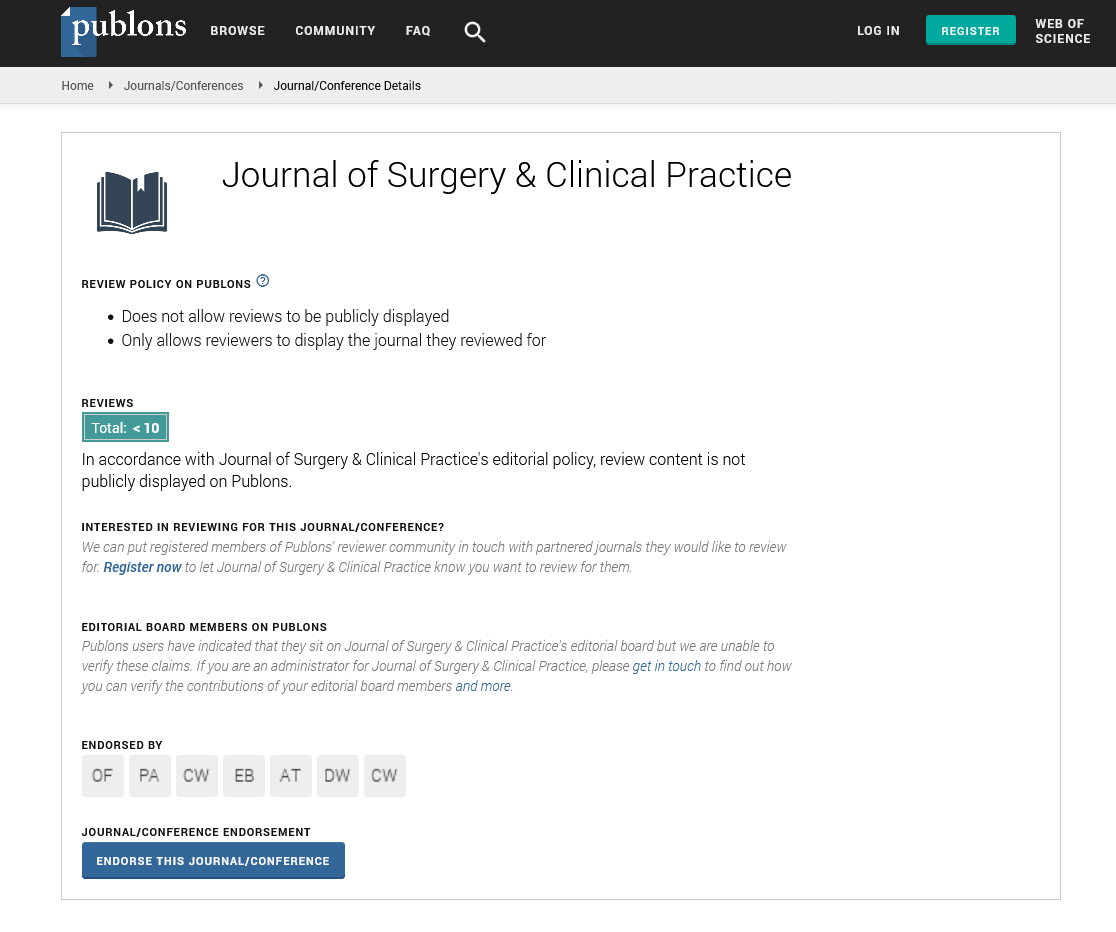Commentary, J Surg Clin Prac Vol: 7 Issue: 1
Role of Surgery in the Treatment of Severe Pseudomembranous Colitis
Pouya Iranmanesh*
1Division of Digestive Surgery, Geneva University Hospital, Geneva, Switzerland
*Corresponding Author: Pouya Iranmanesh
Division of Digestive Surgery, Geneva University Hospital, Geneva, Switzerland
E-mail: iranmanesh@hcuge.ch
Received date: 22 February, 2023, Manuscript No. JSCP-23-93030;
Editor assigned date: 27 February, 2023, Pre QC No. JSCP-23-93030(PQ);
Reviewed date: 15 March, 2023, QC No. JSCP-23-93030;
Revised date: 22 March, 2023, Manuscript No: JSCP-23-93030(R);
Published date: 29 March, 2023, DOI: 10.35248/JSCP.23.7.100370.
Citation: Iranmanesh P (2023) Role of Surgery in the Treatment of Severe Pseudomembranous Colitis. J Surg Clin Prac 7:1.
Description
Pseudomembranous colitis is a type of infection that affects the large intestine, caused by the bacteria Clostridium difficile (C. difficile). This infection causes inflammation and ulceration of the colon lining, which can lead to the formation of a pseudomembrane. Pseudomembranous colitis is often treated with antibiotics, but in some cases, surgery may be necessary. The majority of patients with pseudomembranous colitis respond well to antibiotics, and surgery is rarely necessary. However, there are certain situations where surgery may be indicated. These include Fulminant colitis is a severe form of colitis where the inflammation is so severe that it leads to toxic megacolon, a condition where the colon becomes enlarged and inflamed. Fulminant colitis can be life-threatening, and surgery may be necessary to remove the affected portion of the colon. In Some patients they may experience recurrent colitis, despite appropriate antibiotic therapy. For these patients surgery may be necessary to remove the affected portion of the colon. In rare cases, the inflammation and ulceration of the colon lining can lead to a perforation, or hole, in the colon. This can result in a life-threatening infection and requires urgent surgical intervention.
There are two main types of surgery for pseudomembranous colitis: Colectomy and Faecal Microbiota Transplantation (FMT). Colectomy is a surgical procedure where the affected portion of the colon is removed. This can be done using open surgery, where a large incision is made in the abdomen, or laparoscopic surgery, where several small incisions are made and a laparoscope (a thin, flexible tube with a camera) is used to guide the surgeon. Colectomy is often necessary in cases of fulminant colitis, recurrent colitis, or perforation.
Faecal microbiota transplantation is a procedure where stool from a healthy donor is transplanted into the colon of a patient with pseudomembranous colitis. The goal of FMT is to restore the balance of bacteria in the colon and eliminate the C. difficile infection. FMT is typically used in cases of recurrent pseudomembranous colitis that have not responded to antibiotics.
The outcomes of pseudomembranous colitis surgery depend on several factors, including the severity of the infection, the patient's overall health, and the type of surgery performed. Colectomy is a major surgical procedure that carries some risks, including bleeding, infection, and blood clots. The mortality rate for colectomy ranges from 1%-5%, with the highest risk in patients with fulminant colitis. However, in cases where surgery is necessary, colectomy can be life-saving and can result in a complete cure of the infection. Colectomy is a last resort and is typically only considered in patients who are unresponsive to medical therapy and have severe, life-threatening symptoms. Additionally, colectomy is associated with significant morbidity and mortality and should only be performed by experienced surgeons in specialized centers. FMT is a relatively new procedure, and its long-term outcomes are not yet well understood. However, studies have shown that FMT can be highly effective in treating recurrent pseudomembranous colitis. One study found that FMT had a success rate of 92% in patients with recurrent C. difficile infection.
Pseudomembranous colitis is a serious infection that can cause significant morbidity and mortality. While the majority of patients can be successfully treated with antibiotics, in some cases, surgery may be necessary.
 Spanish
Spanish  Chinese
Chinese  Russian
Russian  German
German  French
French  Japanese
Japanese  Portuguese
Portuguese  Hindi
Hindi 
